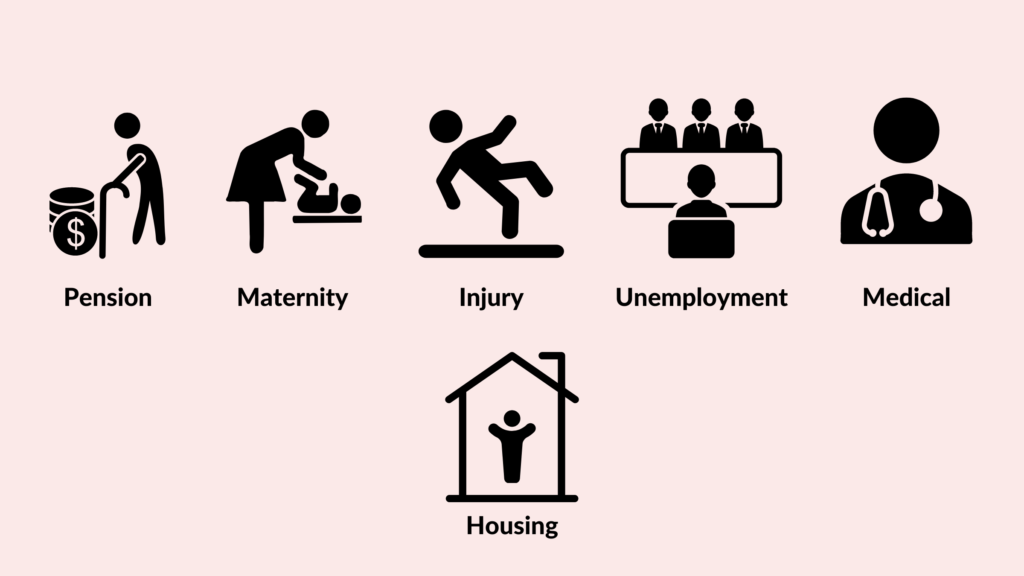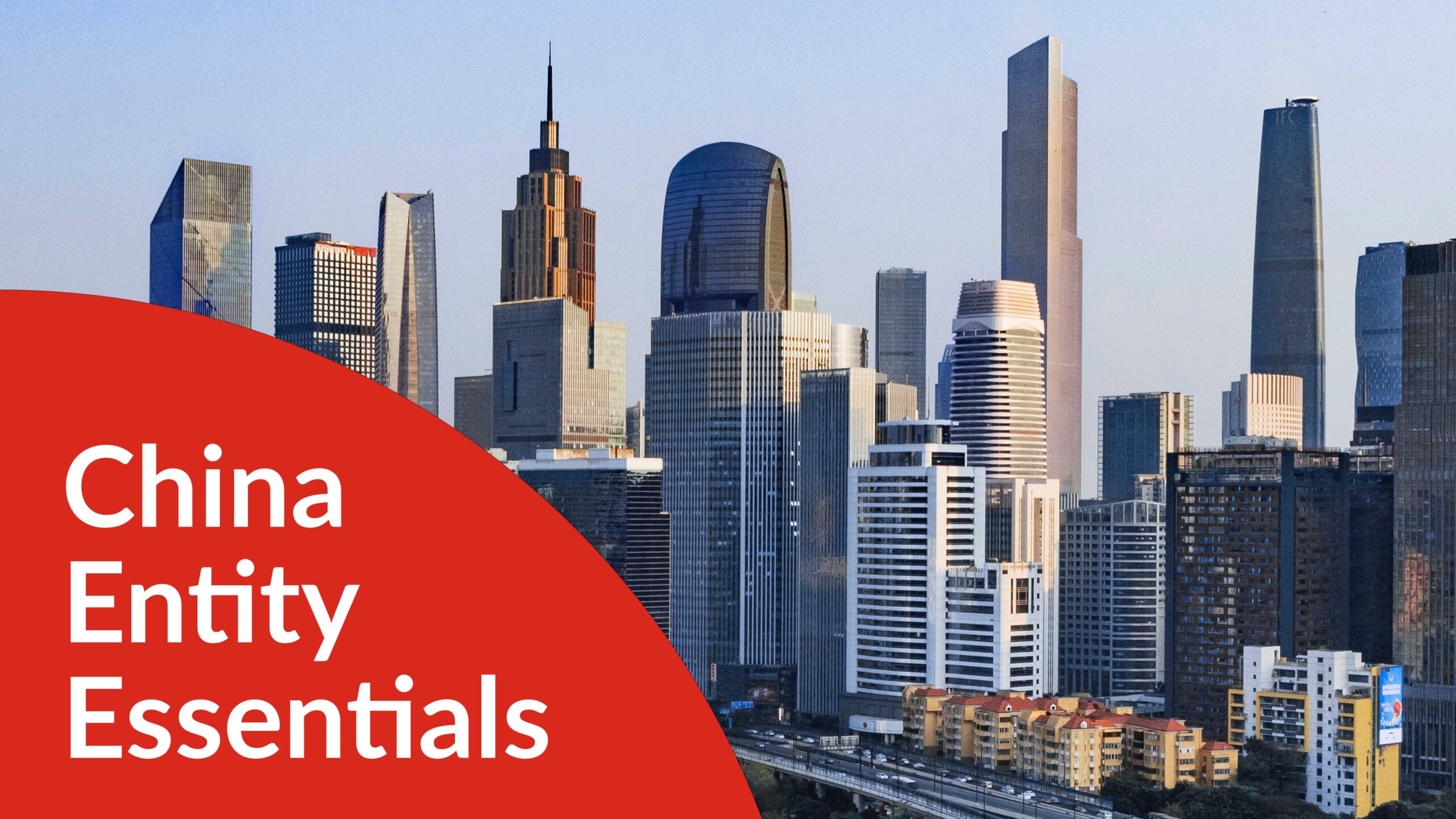When hiring employees in China, it’s crucial to consider the country’s complex social insurance system. As an employer, understanding your social insurance obligations is essential when creating your hiring budget, as contributions can range from 10% to 40% of an employee’s salary.
Why is there such a range? The variation in social insurance rates depends on the location of employment and the employee’s salary. Let’s dive in.
Overview
China’s social insurance program, known as “Five Insurances and One Fund,” consists of five insurance types and a housing fund, with both employers and employees required to contribute.
- Pension (Endowment Insurance) – Employers and employees both contribute to this scheme, part of China’s national pension system for laborers in retirement. The required employer contribution can be up to 20% of an employee’s salary.
- Medical Insurance – Both employers and employees contribute to this insurance, which covers medical expenses if an individual is injured. The employer’s contribution ranges from 6-12% of the salary, while the employee contributes 2%. Part of this fund goes into the individual’s medical account, and part goes to the health system’s public accounts.
- Unemployment Insurance – If an individual becomes unemployed, they can claim unemployment benefits from the state, provided they have paid their unemployment premiums for at least a year. Both the employer and employee contribute to this insurance.
- Maternity Insurance – Employers pay into this fund to cover maternity-related medical expenses and the employee’s salary during maternity leave.
- Work Injury Insurance – Employers solely contribute to this fund, usually below 0.5% of the salary, to cover costs associated with work-related injuries. If an injury occurs at work, this fund covers various costs, and the employer must pay the injured employee’s wages. This fund is different from Employer Liability Insurance.
- Housing Fund – In addition to the five insurances, employers and employees must contribute to the Housing Fund, administered by the Ministry of Housing. Eligible employees can use the funds in their individual accounts for a down payment on a house or a mortgage. Most cities have a minimum required contribution percentage, such as 5% in Guangzhou and 7% in Shanghai, but employers can choose to pay more as a supplementary allowance, typically up to around 12%.

How to Calculate Social Insurance
So, now you know what “social insurance” is, how do you calculate what you need to pay? The payable amount depends on the salary and location.
However, almost every city has its own policy on social insurance, complicating matters. Therefore, the employer contributions for your team member in Guangzhou will differ from those in Tianjin, even with the same salary.
The table below shows the percentage of salary and total payment for social insurance contributions in Guangzhou and Tianjin, highlighting the differences in employer obligations between these two cities.
| Category | Guangzhou | Tianjin |
|---|---|---|
| Base Salary | 16,000 | 16,000 |
| Pension (Endowment Insurance) | 14% | 16% |
| Medical Insurance + Maternity Insurance | 6.85% | 10.5% |
| Unemployment Insurance | 0.48% | 0.50% |
| Work Injury Insurance | 0.32% | 0.20% |
| Housing Fund | 5% | 5% |
| Supplemental Housing Fund (Optional) | 1% – 7% | 1% – 7% |
| Total Employer Contribution (Minimum) | 5,384 yuan (33.65%) | 6,272 yuan (39.2%) |
There are variations like this across China, and the rates are subject to change, so you should seek professional advice to ensure you are paying the correct amount. For personalized support in calculating social insurance costs for the city and salary you plan to hire for, check out our Salary Calculator.
How Do You Pay Social Insurance?
Employers with an entity in China must open a local bank account eligible for handling payroll and sign agreements with relevant insurance bodies for monthly direct debits. Note that not all banks, such as HSBC local accounts, meet this requirement.
For those without an entity in China, employing team members through a third-party service provider is an option. The China Desk, for example, can manage all payroll and social insurance matters with full transparency.
Key Points to Note
Along with the overview and calculations, keep these key points in mind:
- Some cities have salary caps for social insurance calculations. For example, Tianjin currently has a cap of 22,434 yuan. Salaries above this cap will not increase the premium.
- You cannot pay social insurance in a city where your company is not incorporated.
- Rates and salary caps change regularly, so it’s essential to check for updates.
- The state can alter the housing fund rate.
- As a general rule (though not a strict policy), social insurance rates tend to be higher in cities where average salaries are lower. Beijing is an exception, with both high social insurance rates and wages.
- Paying social insurance is mandatory by law.
These warnings might feel daunting, but with proper budgeting and advice on social insurance calculations, you’ll be fine.
For support with social insurance costs for your employees in China, check out our Salary Calculator or contact one of our team members.



